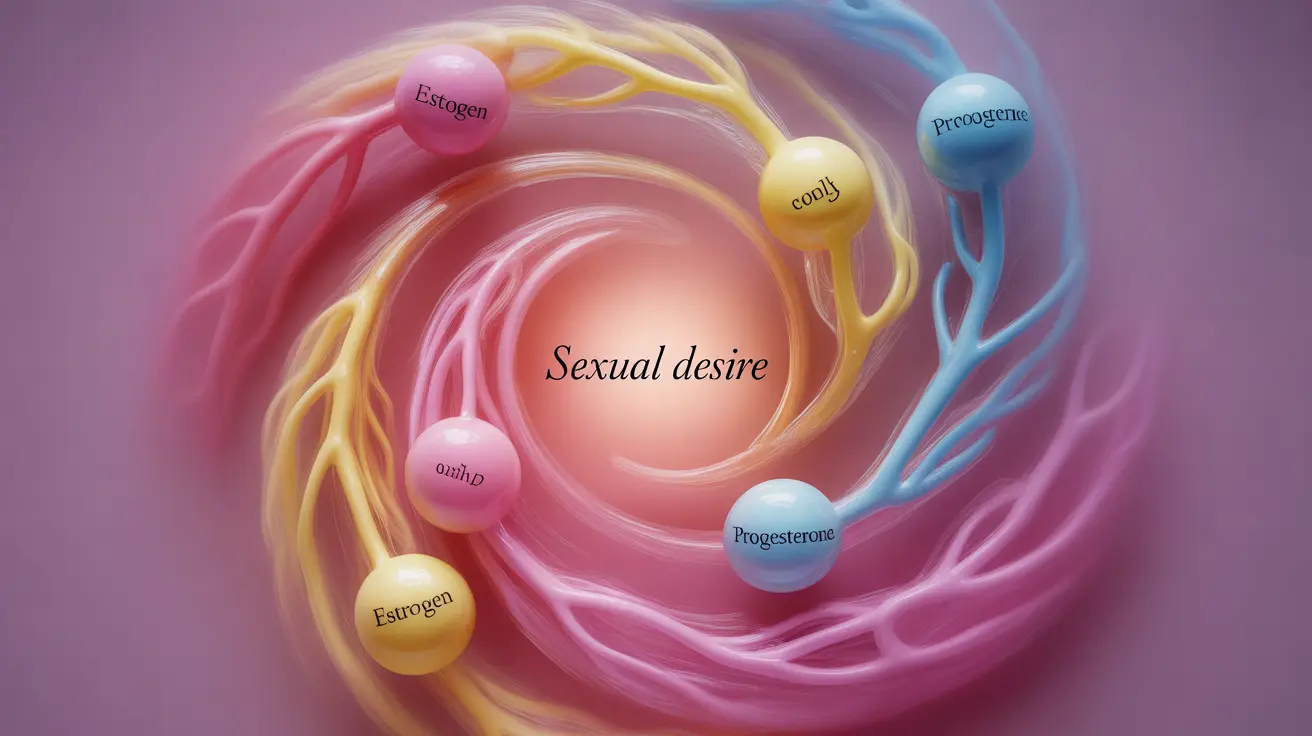Many people experience changes in their sex drive throughout their menstrual cycle and during early pregnancy. Understanding whether increased libido is a sign of pregnancy or simply part of your regular menstrual cycle can be confusing, especially when trying to conceive. This article explores the relationship between hormonal changes, sexual desire, and their significance as potential pregnancy indicators.
How Hormones Affect Sexual Desire
Hormonal fluctuations play a crucial role in regulating libido throughout the menstrual cycle and during pregnancy. These changes can significantly impact sexual desire, making it important to understand the underlying mechanisms.
Hormonal Changes During the Menstrual Cycle
During a typical menstrual cycle, hormone levels fluctuate predictably, affecting sex drive in different ways:
- Estrogen peaks before ovulation, often increasing libido
- Testosterone levels rise slightly mid-cycle
- Progesterone increases after ovulation, which may decrease sex drive for some
- Pre-menstrual hormonal shifts can cause varying effects on libido
Early Pregnancy Hormonal Changes
Pregnancy introduces different hormonal patterns that can affect sexual desire:
- Human Chorionic Gonadotropin (hCG) rises rapidly
- Progesterone and estrogen levels increase gradually
- Blood flow to the pelvic area increases
- Breast and genital sensitivity may change
Distinguishing Between PMS and Early Pregnancy
While increased libido can occur in both situations, several key differences can help distinguish between PMS and early pregnancy:
PMS-Related Changes
During PMS, you might experience:
- Cyclical changes in sex drive
- Temporary breast tenderness
- Mood swings that resolve after menstruation
- Cramping that leads to menstruation
Early Pregnancy Signs
Early pregnancy typically involves:
- Persistent breast changes
- Missed period
- Morning sickness
- Fatigue
- Frequent urination
Understanding Increased Libido as a Symptom
While changes in sex drive can occur during both early pregnancy and PMS, it's important to note that increased libido alone is not a reliable indicator of pregnancy. Other early pregnancy symptoms are typically more reliable markers.
Frequently Asked Questions
Is increased sexual desire or horniness a reliable early sign of pregnancy?
No, increased sexual desire alone is not a reliable indicator of pregnancy. While some people may experience changes in libido during early pregnancy, this symptom varies greatly among individuals and can also occur during regular menstrual cycles.
Can feeling horny before a period help distinguish between pregnancy and PMS symptoms?
Changes in libido before a period are not reliable indicators for distinguishing between pregnancy and PMS, as hormonal fluctuations can cause increased sex drive in both situations. More reliable indicators include missed periods and other early pregnancy symptoms.
What causes libido to increase right before a period or during early pregnancy?
Hormonal fluctuations are the primary cause of libido changes. Before a period, changes in estrogen and testosterone levels can increase sex drive. During early pregnancy, increased blood flow to the pelvic area and hormonal changes can affect libido differently for each person.
How do hormonal changes during pregnancy and the menstrual cycle affect sex drive differently?
During the menstrual cycle, libido changes typically follow a predictable pattern linked to ovulation and hormone fluctuations. In pregnancy, hormonal changes are more sustained and can cause varying effects on sex drive throughout the different trimesters.
What other symptoms should I look for to tell if I'm pregnant instead of just having PMS?
More reliable early pregnancy symptoms include a missed period, morning sickness, frequent urination, persistent breast changes, and unusual fatigue. These symptoms, especially when combined, are more indicative of pregnancy than changes in libido alone.




